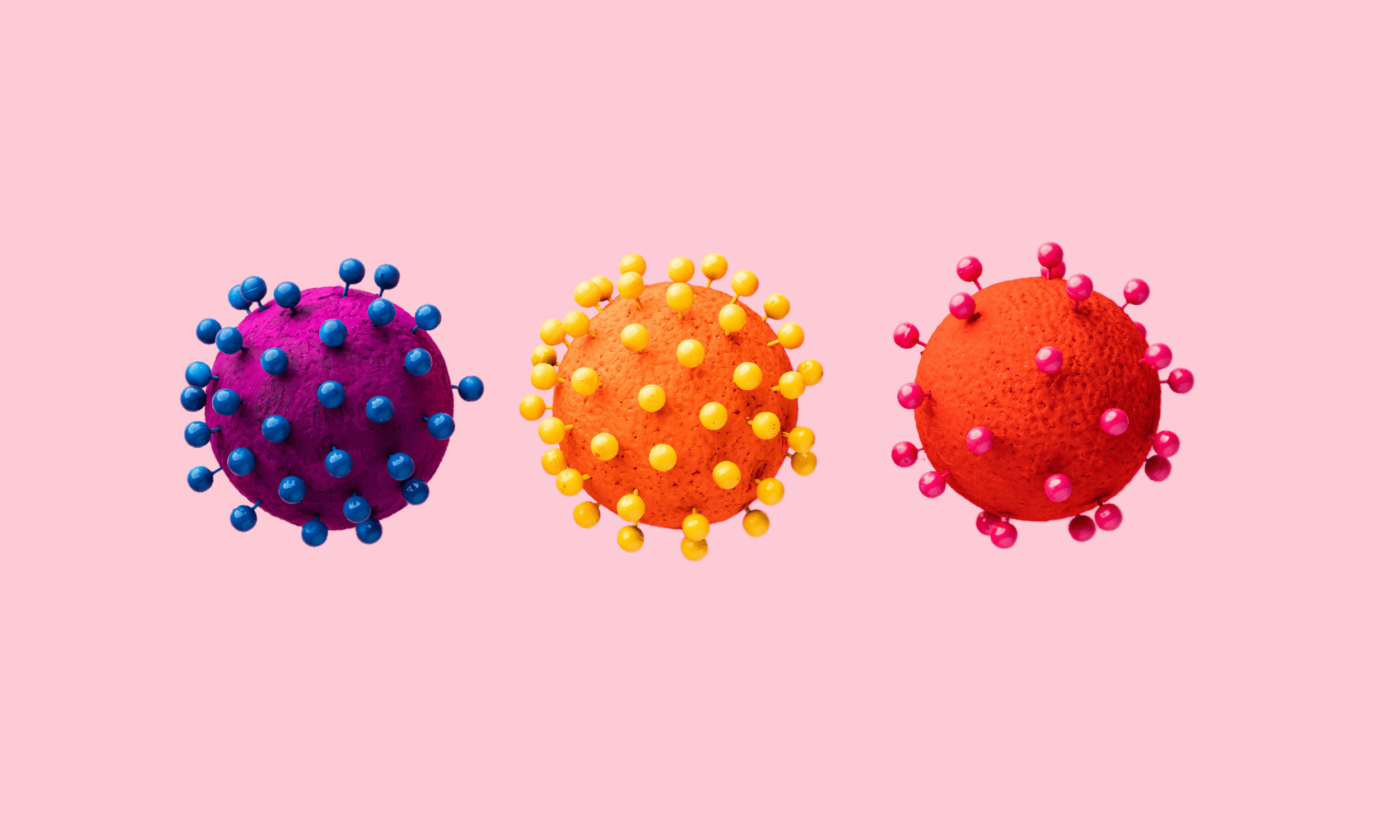
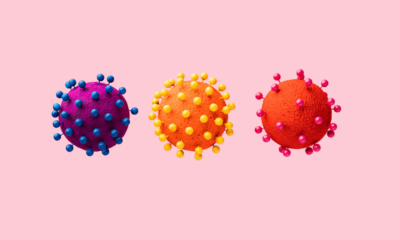
Monkeypox is a current public health issue of increasing concern to the scientific community, given the rising number of cases worldwide. As the situation is still being monitored and the available medical data on the disease is constantly changing, regular updates incorporating updated information are recommended.
Last update: 04/08/2022
WHAT IS MONKEYPOX (MPX)?
Monkeypox (MPX) is the disease caused by the virus of the same name. This virus belongs to the same family as the virus that causes smallpox. The symptoms are similar, but milder. The disease is usually self-limiting with symptoms lasting from 2 to 4 weeks. Severe illness or death is rarely caused.
HOW IS IT TRANSMITTED?
Monkeypox (in its recent mutation) is transmitted in the following ways:
- through close physical contact (direct contact with the rashes or body fluids) of a person with the virus
- touching objects, fabrics (clothes, bedding or towels) and surfaces that have been used by a person with the virus
- close face-to-face contact, which may occur during kissing, hugging or oral, anal and vaginal sex
- contact with the genitals or the anus of an infected person
- through the placenta during pregnancy
- The virus is transmitted from the moment symptoms begin until the rashes are fully healed and a new layer of skin is formed.
WHAT ARE THE SYMPTOMS?
The symptoms of monkeypox can be the following:
- rashes with blisters on any part of the body (usually on the genitals, anus and mouth, but may also appear on the hands, feet and face among other places). The rashes go through several stages before they heal. They may look like pimples or blisters and may be painful or itchy.
- inflammation and pain in the rectum
- swollen lymph nodes
- fever
- headache (less common)
- muscle pain and backache (less often)
- exhaustion (less often)
- respiratory problems such as sore throat, nasal congestion or cough (less often)
Depending on the case, all or only some symptoms may be present. Sometimes, rashes appear first, followed by other symptoms. Other times, only rashes appear.
Symptoms of monkeypox usually start within 3 weeks of exposure to the virus. The incubation period (time from infection to the appearance of symptoms) of monkeypox is usually from 6 to 13 days, but can range from 5 to 21 days. Rashes usually appear 1-4 days after flu-like symptoms. Monkeypox can be transmitted from the time symptoms begin until the rashes are completely healed and a new layer of skin has formed.
The disease usually lasts 2-4 weeks, is usually relatively mild and can be treated at home. Some people may become more severely ill, especially those with weak immune systems, people in pregnancy and young children.
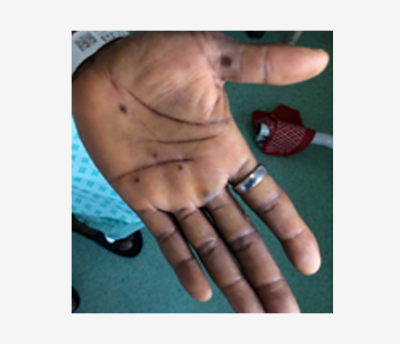
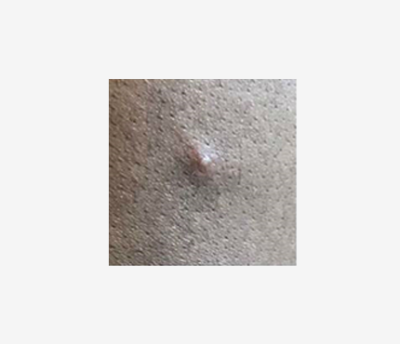
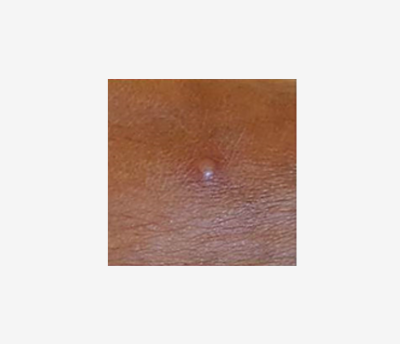
Source of images: UK Health Security Agency, NHS England High Consequence Infectious Diseases Network
IS IT A SEXUALLY TRANSMITTED DISEASE?
On the basis of the data available so far, monkeypox is not defined as a sexually transmitted disease. This is because, although the virus has been found in sexual fluids, transmission is through close physical contact, whether or not this involves sex. Further research is ongoing.
Until more scientific data is available, World Health Organization guidelines recommend that people with confirmed monkeypox infection use a condom for 12 weeks after the rashes have healed.
HOW IS THE DIAGNOSIS MADE?
If a person suspects that they have symptoms suggestive of monkeypox, they should contact a doctor or the National Organization of Public Health (ΕΟΔΥ) by calling 1135 (for Greece). Initially, a clinical differential diagnosis is made to rule out other similar diseases and then a sample is collected and tested in a laboratory. For the correct interpretation of the test results, it is useful to provide several pieces of information, such as the date of onset of fever, the date of onset of the rash and the current condition of the person (stage of the rash)
HOW IS IT CURED?
First of all, it is treatable and usually self-contained.
There are no treatments specifically for monkeypox. However, the monkeypox and smallpox viruses are genetically similar, which means that antiviral drugs and vaccines produced to protect against smallpox can be used to prevent and treat monkeypox virus infections. In many cases, the vaccine can be administered as a treatment (within 4 days of exposure to prevent disease onset or within 14 days to relieve symptoms).
If you have symptoms of monkeypox, you should talk to a doctor, even if you do not believe you had contact with a person with the virus.
WHICH GROUPS ARE CONCERNED?
Monkeypox is a public health issue that concerns all individuals without exception. Associating it with specific social groups (e.g. gay men) is wrong, since the “risk rate” is related to specific practices (close physical contact: direct contact with rashes, prolonged face-to-face contact, sexual contact, contact with objects in which the virus is present) and not to social categories. The idea that the disease is exclusive to the gay community can lead to dangerous complacency in the general population.
WHAT SHOULD I DO IF I SUSPECT I AM INFECTED WITH THE VIRUS?
- Consult the health authorities (e.g. by calling ΕΟΔΥ on 1135 – for Greece) and follow their instructions on treatment.
- Avoid contact with other people until you have been examined by a health professional.
- Stay in quarantine for as long as needed.
- Tell people with whom you have been in close contact recently.
HOW CAN I PROTECT MYSELF?
At this stage it is particularly important to increase information and awareness about the risk factors. Scientific studies are underway to better understand the disease and the effectiveness of the vaccine. Some countries have policies in place to make the vaccine available to people who may have an increased risk of transmission.
To reduce the chances of transmitting the virus:
- Avoid contact with people who have symptoms suggestive of monkeypox.
- Use a condom during sexual intercourse.
- Wash your hands often with soap and water or alcohol-based hand sanitizer.
VACCINE
The vaccines used during the smallpox eradication programme also provide protection against monkeypox (about 85%). Newer vaccines have also been developed, one of which has been approved for the prevention of monkeypox.
Vaccination is recommended for people who have been exposed to the virus and for people who are more likely to be exposed to the virus.
Individuals most likely to be exposed to monkeypox include:
- people who have been in contact with a case
- people who know that one of their sexual partners in the last 2 weeks has been diagnosed with the virus
- people who have had multiple sexual partners in the last 2 weeks and live in an area with an outbreak of the virus
- people living with HIV who have a weakened immune system (e.g. reduced CD4 count)
The above are general guidelines from global health bodies. In Greece, the vaccination programme has not yet started. Positive Voice has expressed the relevant claims.
MONKEYPOX AND HIV
Available evidence suggests that HIV-positive individuals who have developed AIDS syndrome or who have a very low CD4 count may be at increased risk of severe monkeypox infection. In contrast, according to the World Health Organization, for people living with HIV and they are receiving antiretroviral therapy and having an undetectable viral load, there is no difference in disease outcome found, compared to the general population. In general, people living with HIV should follow the same prevention guidelines as anyone else to protect themselves from monkeypox.
Useful information:
- Most cases of the new monkeypox mutation in non-endemic countries are found in men living with HIV.
- Immunocompromised individuals may present with slightly different rashes, possibly making diagnosis more difficult.
- The vaccine should be made available as a preventive measure to people living with HIV, if indicated. For individualised guidance and more information about vaccination, each person should discuss with their doctor who is treating them.
FUTURE RESEARCH
Understandably, the scientific community is still studying and trying to better understand the new variant of monkeypox. Among the questions that remain unanswered due to insufficient data are the following:
- Can the virus be transmitted when a person has no symptoms?
- How often is monkeypox transmitted through respiratory secretions or when is a person with symptoms more likely to transmit the virus through respiratory secretions?
- Can the virus be transmitted through semen, vaginal fluids, urine or faeces?
WHAT REMAINS TO BE DONE
As scientific research progresses, it is particularly important that the state takes appropriate measures to adequately address the issue. The Positive Voice – Association of people living with HIV in Greek proposes:
- the establishment of a point of reference to the EODY on this issue
- broad, careful, non-stigmatising information actions aimed at the general population, but also targeted at high-risk groups (elimination of misconceptions about ‘a disease exclusively affecting gay men’)
- the immediate availability of sufficient quantities of vaccines in order to adequately shield those with an increased risk of exposure
- easy access to appropriate testing, especially in areas where there is or is likely to be an outbreak
- easy access to effective treatments
- the availability of PrEP (and PEP) for better protection during sex in general
Sources: WHO, CDC, ΕΟΔΥ